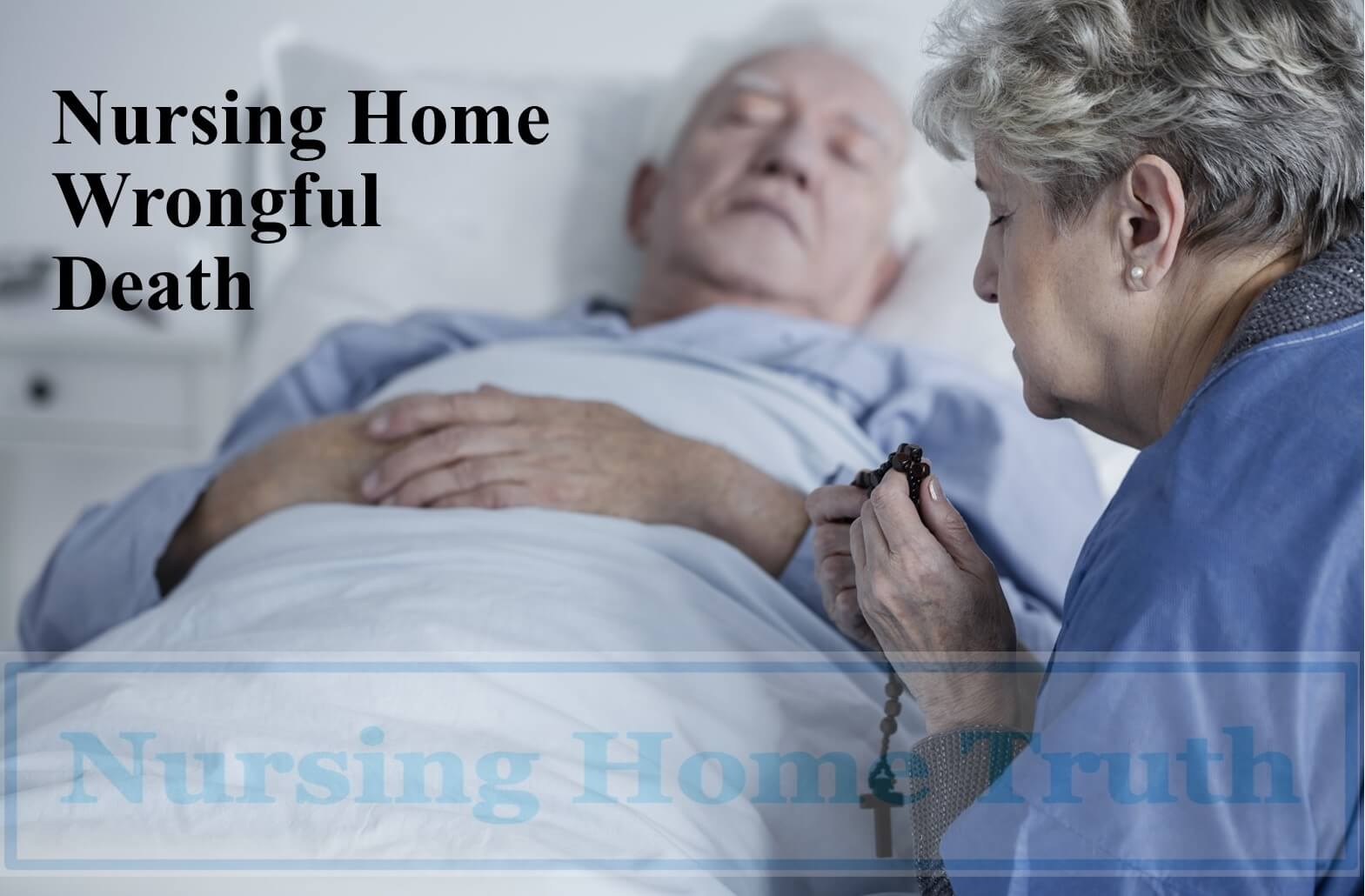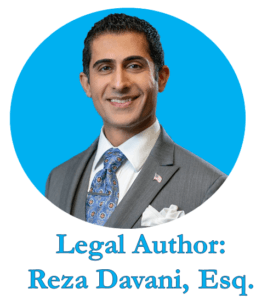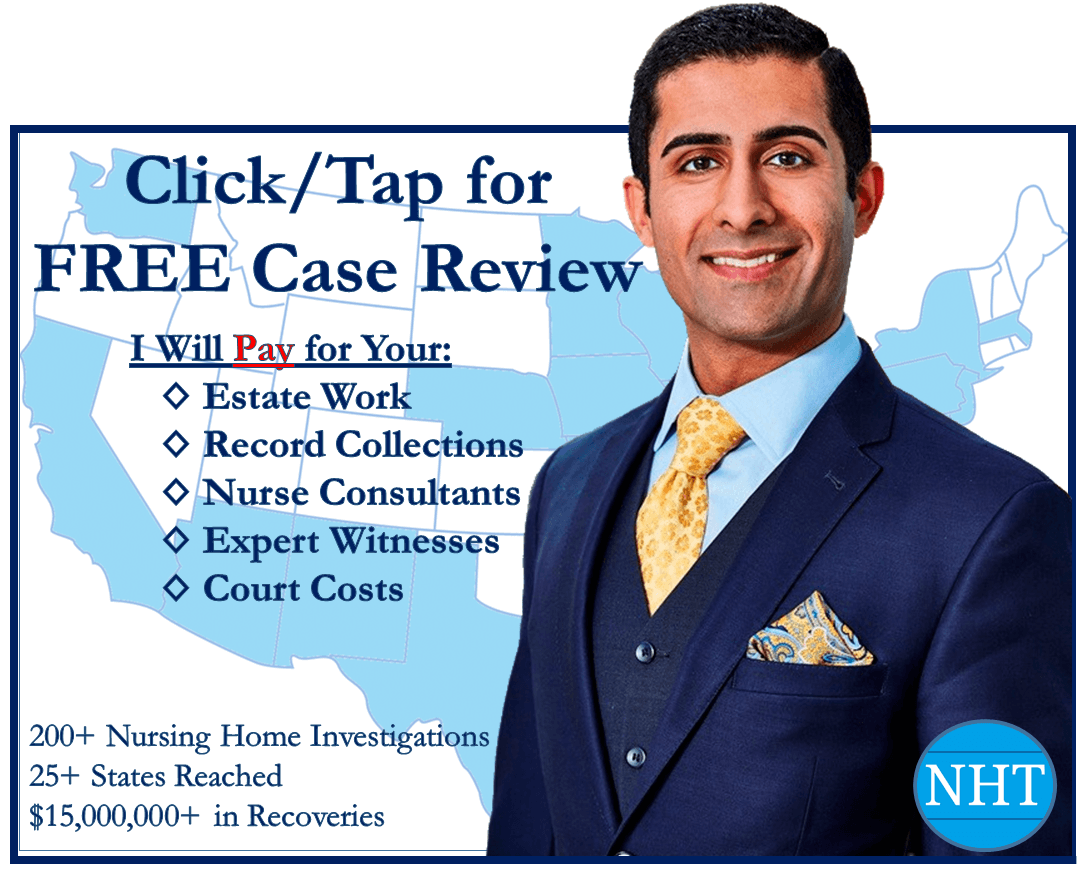Article Updated: January 17, 2022
Nursing Home Wrongful Death Cases
I have investigated and handled over 90 nursing home wrongful death cases.
If you lost a loved one due to nursing home neglect or abuse, first and foremost, I am sorry for your loss. You need time to grieve, find balance, and collect yourself before moving forward.
Once you are ready, you deserve to know what happened in that nursing home and why.
The nursing home will not hand those answers over without a fight. I am prepared to fight for you, and squeeze those answers out of them.
Read more about nursing home wrongful death cases below, then call me for a free consultation and ask how I can get you justice.
Clickable Table of Contents
Nursing Home Wrongful Death Laws
1 – Nursing Home Wrongful Death Beneficiaries
2 – Nursing Home Wrongful Death Cases
Nursing Home Wrongful Death Lawsuit
3 – Should You Sue a Nursing Home for Wrongful Death ?
4 – Nursing Home Wrongful Death Lawsuit Investigations
5 – Nursing Home Wrongful Death Lawsuit Timelines
6 – Nursing Home Wrongful Death Q&A
7 – Nursing Home Wrongful Death Attorneys
Resources
8 – Supporting Literature, Citations & Research
9 – About the Author
10 – Legal Help in Maryland & Nationally
Nursing Home Wrongful Death Beneficiaries
Who has beneficiary rights in wrongful death cases? In most situations, a wrongful death case will provide benefits for parents, children or the spouse of the person who has died. If none are available, then other options are possible as well.
Who Is A Beneficiary?
As noted above, according to most state laws, like Maryland § 3-904, the beneficiaries in a wrongful death will be those who are closely related to the person who is deceased. This will mean the closest people to the individual, i.e. the parents of the deceased, the spouse or the children.
In cases where these individuals are not a possible option, then any individual who was substantially dependent on the deceased will be considered a beneficiary in a nursing home wrongful death case.
In some states, siblings can also be a wrongful death beneficiary, but that is rare.
Who Is Not A Beneficiary?
A beneficiary will generally not include people outside of the aforementioned list. Individuals including grandparents, aunts, uncles, and other close family members are not able to benefit in nursing home wrongful death cases (barring rare exceptions for some states and situations).
You should not take this to mean you absolutely cannot benefit. Some states have rules where people outside of the usual narrow list can benefit.
The only way to know if you have a strong position in suing a nursing home for wrongful death is to get legal help. You can do this by contacting me so that I can review your case and let you know if a nursing home wrongful death lawsuit is a recoverable claim for you.
Can I Sue The Nursing Home?
Yes, you and other close family members that have been affected by a nursing home can sue a nursing home for wrongful death if your loved one died.
Depending on your state and case, you may have the ability to bring a lawsuit against both the nursing home facility itself and the staff in a wrongful death case.
Through a lawsuit, you can attempt to recover financial compensation for costs including:
◊ Funeral costs
◊ Medical costs
Suing a nursing home for wrongful death is not a simple process and needs detailed knowledge of state laws.
Do not speak to a nursing home about your wrongful death case before you have had a chance to get legal assistance. Much like you hear in those TV shows, “anything you say can and will be used against you.”
Nursing Home Wrongful Death Cases

This is not the whole picture as there are other considerations like loss of society, pain and suffering and mental anguish that can also result in damages being awarded.
When suing a nursing home for wrongful death, I work to have all possible factors included in the recovered damages to ensure the negligent nursing home doesn’t get away with anything they should be reimbursing to the victims.
Recoverable Damages in a Nursing Home Wrong Death Case
When there is a nursing home wrongful death, damages can be recovered for more than just medical or funeral costs. Economic benefit or losses are not the only factor taken into consideration in these wrongful death claims.
For example, state laws, like § 3-904(d), allow recovery for:
◊ Mental anguish
◊ Emotional pain and suffering
◊ Companionship
◊ Comfort
◊ Protection
◊ Marital care
◊ Parental care
◊ Attention
◊ Advice
◊ Counsel
◊ Training
◊ Guidance
◊ Education
As an experienced nursing home wrongful death attorney, I can navigate the specifics of your case to see which of these can be included in your demand and claim, or if additional elements not listed here can also be included.
In some cases, we can even reach beyond damages caps by using creative investigations to unearth damages that many lawyers leave on the table with these claims.
Who can Recover The Damages?
In a wrongful death case there is not an endless list of individuals who can recover damages or bring a suit. The damages that are brought are usually for the death of specific individuals who have a relation to the deceased victim, such as:
◊ Spouse
◊ Parent
Again, this is not a full list as specific cases will need to be looked at within your own state’s laws and norms to determine what potential there is for your individual claim.
What Causes Wrongful Death In Nursing Homes?
Wrongful death cases that come from nursing homes can arise from a variety of negligent acts.
This includes neglect, negligence due to inattention, short-staffed nursing homes and poor treatment.
Other common causes of wrongful death in nursing homes are:
◊ Sepsis
◊ Pressure wounds
◊ Falls
◊ Choking
There are multiple other causes of wrongful death including incorrect medicine being given, delayed care for serious symptoms and even abuse.
Should You be Suing a Nursing Home for Wrongful Death ?
We know that suing a nursing home for wrongful death will not bring your loved one back. It does, however, create accountability.
Let me walk through the process for you.
An Investigation Cannot Hurt
While you cannot undo the events that led to death, you can at least find answers as to why this event took place. A nursing home wrongful death lawsuit can give you answers through an investigation of liability related issues.
This investigation can help reveal whether or not suing a nursing home for wrongful death is the right choice for you, or whether the claim is non-viable.
What Will An Investigation Mean?
When you at least take the first steps and investigate your wrongful death concerns, you can make an informed decision as to whether or not you want to follow through with a lawsuit.
Once an investigation shows that the victim died due to malpractice, you can decide what the best next steps are for you.
This can mean you decide to go through with a full lawsuit where you go to trial, or one that you settle out of court.
Your Next Move
What decision you take after an investigation will be up to you and what is found in the investigation results.
There is no single right choice or course of action to take. Each case will be different.
Your case and what is the right choice will depend on what happens in your investigation.
At a minimum, you should have an investigation conducted to know what your choices are and why your family died in this facility.
Nursing Home Wrongful Death Lawsuit Investigations
Steps must be taken in your wrongful death lawsuit to ensure that the case is going through all the needed stages to be strong.
In order to ensure that your case is organized, strong and has the best chance of getting the desired conclusion, certain steps, as outlined below, will be taken.
Creating Estates
One of the first acts that a nursing home wrongful death attorney will do is to help you create estates. These estates will be used to collect medical records.
This legally formed estate will allow records to be collected and organize all pertinent information related to your wrongful death suit.
Medical Records
Collecting medical records is another important act that will have to be done in as speedy a manner as possible.
These records are what will make up the initial investigative stages of your wrongful death suit and give you the information you need to decide how to proceed.
Attorney Review
As a nursing home wrongful death attorney, I will have the experience to look at medical records in a wrongful death case and identify patterns and information that can be useful.
A lawyer’s review of the medical records is vital and can give you early insight into the best course of action for your case.
I do this for free for my clients, and the only time I ever get paid is if I recover money from the nursing home on their behalf.
Expert Review
Once a lawyer has reviewed your medical records, an expert review of those same medical records will be the next course of action.
An expert’s review can allow for more insight and even stronger determination of whether or not a case should be settled or filed and fought.
If an expert is able to review the medical records in a favorable manner, this is positive for your case as it marks the end of the investigative stage and you can decide what your next best course of action will be.
Nursing Home Wrongful Death Lawsuit Timelines
What can you expect in your wrongful death lawsuit?
How long will the lawsuit take?
There are two major parts to your case and these will be the pre-litigation phase and the active litigation phase.
Pre-litigation Timelines for Wrongful Death Cases

The investigation will give you more insight into whether or not there is a strong case for your malpractice claims.
This information will then help you decide whether you should settle or your should go to trial.
There are four major parts in pre-litigation:
◊ Create Estates and collect medical records: This process takes approximately 3 months
◊ Collect all medical records and fill in gaps: Approximately 4 months total is needed for this
◊ Have a lawyer review the medical records: At least one month is needed to sort, stamp and index then review all records.
◊ Expert review of the medical records: Should generally take between 1-2 months total
Active Litigation
The active litigation stage does take longer and involves the following steps:
◊ Service and answer response
◊ Conduct a formal written discovery
◊ Go through depositions
◊ Handle the lengthy process of expert witness battles which includes discovery and depositions
◊ Have a settlement conference
These steps can generally take anywhere from 1 ½ years to 2 years total.
If your case is going to trial there is also another 2-3 weeks that will usually make your total time from filing a suit to going to trial over 2 years.
Nursing Home Wrongful Death Q&A
What helps to determine if I should go to court or settle my wrongful death case?
What determines whether or not you should go to court will be the investigation that will take place in your pre-litigation phase.
This is where we can help determine through a review of medical records whether your case should go to court or settle out of court.
Is going to trial always the best choice in a wrongful death case in a nursing home?
No, going to trial is not always the best choice in a wrongful death nursing home case. In some cases, the best choice may be to simply settle early out of court with the nursing home directly.
Who can benefit from the death of a loved one in a wrongful death case?
Not all family members can benefit from the death of a loved one in a wrongful death case. The rule generally is that a parent or child or spouse will be the beneficiary in these cases. There are instances where another family member may possible be able to benefit, but this will depend on your state’s laws.
How long does a wrongful death case take to get to trial?
A wrongful death case can take anywhere from 2 ½ years to over 3 years to get to the point that it will go to trial.
I believe my aunt died from a wrongful death at her nursing home. Can I bring a suit in this case?
In a case like this, it will be your state’s laws that determine whether or not you are eligible to bring a suit because this right is usually reserved for spouses, children and parents. I have, however, represented nieces and nephews for wrongful death claims, but it required some fancy estate footwork to position them as beneficiaries.
Nursing Home Wrongful Death Attorneys
Nursing home wrongful death cases are complex, have statutory hurdles, and often run into additional difficulties if non-deserving family members (i.e., family who long ago abandoned the elderly loved one who passed away) come out the wood-works to interfere with your pursuit of justice.
I have dealt with these exact scenarios, have settled multiple $1,000,000+ personal injury wrongful death cases, and have creative paths to get you across the finish line to overcome roadblocks that arise in suing a nursing home for wrongful death.
The bottom line is, you deserve justice and answers. In your pursuit of those endeavors, you can help stop this from happening to someone else. By suing a nursing home for wrongful death, we show these terrible nursing homes that victims won’t roll over and let careless facilities continue to hurt people.
Let me help you win. Call, email, or submit the contact form below to recruit my legal expertise.
Warmly,
Reza Davani, Esq.
State Bar No.: #1212110211
Federal Bar No.: #30168
Cellphone: (301) 922-4598
Email: reza@nursinghometruth.com

Supporting Literature, Citations & Resources:
2013 Maryland Code COURTS AND JUDICIAL PROCEEDINGS § 3-904 – Action for wrongful death
Scheller, S. M. (2008). Arbitrating Wrongful Death Claims for Nursing Home Patients: What is Wrong with the Picture and How to Make It More Right. Penn St. L. Rev., 113, 527.
Konetzka, R. T., Park, J., Ellis, R., & Abbo, E. (2013). Malpractice litigation and nursing home quality of care. Health services research, 48(6pt1), 1920-1938.
Peeples, R., & Harris, C. T. (2015). What is a Life Worth in North Carolina: A Look at Wrongful-Death Awards. Campbell L. Rev., 37, 497.
Dyer, C. (2020). Aging out Arbitration for Wrongful Death Suits in Nursing Homes. Pepp. Disp. Resol. LJ, 20, 42.
Bragg, D. F. (1997). Dealing with nursing home neglect: The need for private litigation. S. Tex. L. Rev., 39, 1.
Spitzer-Resnick, J., & Krajcinovic, M. (1994). Protecting the rights of nursing home residents: How tort liability interacts with statutory protections. Nova L. Rev., 19, 629.
About the Author
This nursing home and medical malpractice article was written by Baltimore, Maryland nursing home attorney Reza Davani, Esquire. Mr. Davani received his Juris Doctor degree from a Tier 1 law school, the University of Maryland Francs King Carey School of Law. He received his first license to practice law from the State of Maryland’s Court of Appeals (MD State License No. 1212110211), and just four months later received a federal law license from the United States District Court for the District of Maryland (Federal License No. 30168).
Mr. Davani has been practicing law for over 10 years. He began practicing law by helping clients as a sanctioned student lawyer before receiving his law license, and second chaired his first jury trial in federal court before even graduating law school. He is a registered member of the Maryland Association for Justice (MAJ), the American Bar Association (ABA), the American Association for Justice (AAJ), and was formerly on the MAJ’s Legislative Leader’s Circle.
Mr. Davani has taken over 20 cases to trial in state and federal court, and favorably settled well over 100 cases for injured victims. He has personally helped his clients recover over $15,000,000 in personal injury, medical malpractice, and nursing home abuse settlements and verdicts in Maryland and other states. He is dedicated to fighting for justice, and welcomes the opportunity to help you.
Nursing Home Wrongful Death Lawyer Near You in Maryland & Beyond
I can help you anywhere in Maryland, including Allegany County, Anne Arundel County, Baltimore City, Baltimore County, Carroll County, Calvert County, Caroline County, Cecil County, Charles County, Dorchester County, Frederick County, Garrett County, Harford County, Howard County, Kent County, Montgomery County, Prince George’s County, Queen Anne’s County, Somerset County, St. Mary’s County, Talbot County, Washington County, Wicomico County, and Worcester County.
I have helped clients in over a dozen jurisdictions, including California, Delaware, District of Columbia, Georgia, Illinois, Iowa, Massachusetts, Maryland, Mississippi, New Jersey, New Mexico, New York, North Carolina, Pennsylvania, South Carolina, Washington, and Virginia.
I help injured victims nationwide in all 50 states on a case-by-case basis via Pro Hac Vice.











